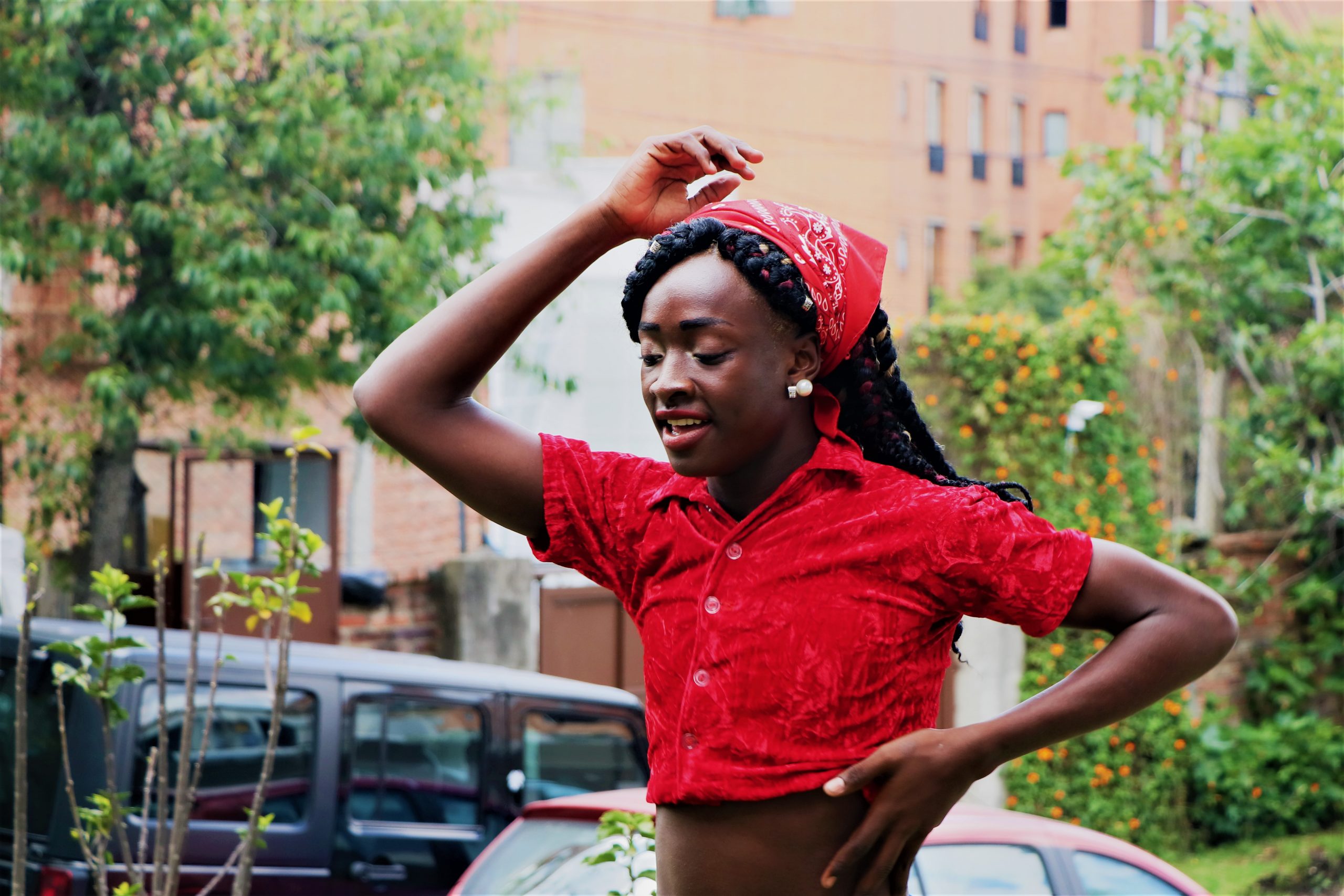
The northern part of Quibdó is one of the poorest areas of the city. It’s also where displaced populations fleeing violence in other parts of Colombia’s Chocó Department tend to settle. With limited access to education or employment opportunities, young people in this area are at risk of being swept up in criminal behavior and gangs.
Rihanna Villa, 19, was assigned male sex at birth but now identifies as a woman. When she first arrived in Quibdó, Rihanna felt unsafe and did not know many young people. Out of fear, she hid her gender identity. In 2017, she began to take part in an initiative with the Program of Alliances for Reconciliation (PAR), funded by USAID and implemented by ACDI/VOCA. PAR teamed up with the Asociación para las Investigaciones Culturales del Chocó (ASINCH), which brings together young people from different neighborhoods to empower them and create safe spaces away from violence. The initiative supported 400 young Afro-Colombians, including Rihanna, in artistic training. Rihanna engaged in choreography workshops and a municipal dance contest sponsored by the initiative. Its impact on her life was overwhelmingly positive, as she was able to showcase her talent and meet other young people. The house where her dance group rehearsed became an artistic and cultural hub and a safe environment for young people from all three neighborhoods to gather.
“You end up concentrating more on dancing than on bad things, and it lets you share your talents with others.”
— Rihanna Villa, 19, a Program of Alliances for Reconciliation youth participant
According to Rihanna, the initiative has been effective in getting young people off dangerous paths. PAR used ACDI/VOCA’s proprietary DecidoSer toolkit, which includes various resources for peaceful conflict resolution and reconciliation. The DecidoSer methodology was central to the training, with multiple workshops held on leadership, teamwork, and social inclusion. This led to positive results in reducing violence and aggression among young participants. Rihanna now has friends in neighborhoods from once-opposing gangs. “We used to have a lot of problems because of the gangs,” she said. “They’re still here, but the neighborhood is more peaceful now, with fewer incidents.”
“Doing activities with the other neighborhoods and breaking down the invisible barriers that existed has really made a difference.”
— Rihanna Villa, 19, a Program of Alliances for Reconciliation youth participant
DecidoSer also had a positive impact on Rihanna personally, as the process helped raise awareness about gender and social inclusion. This awareness has led to better treatment and acceptance of the LGBTI+ community. “Before, I didn’t speak up or participate in activities,” Rihanna said. “Gay people were the target of discrimination, so I hid to avoid being bullied.”
As a result of the increased trust and respect among young people in her community, Rihanna no longer hides who she is. For the first time, she feels empowered as a leader and a woman. Rihanna became the leader of a women’s dance team, and she continues to show her passion for driving change where she lives.
Check out the full 2021 Pride Month blog series:
- Why the Inclusion of LGBTQ+ Populations in Agriculture and Market Systems Matters, Part 1 and Part 2
- Q&A: Experts Discuss Challenges and Opportunities for Collecting LGBTQ+ Data
- Pride Month Blog Series: Experts Discuss Opportunities for Expanding LGBTQ+ Inclusion in Agriculture and Market Systems Development
Learn more about the Program of Alliances for Reconciliation.
Learn more about our work in Colombia.








